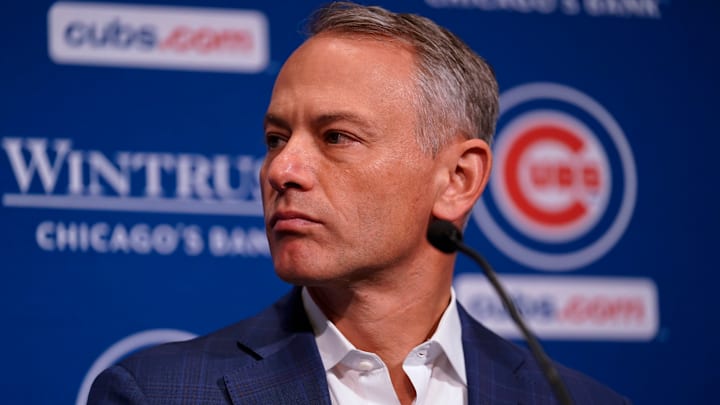The Chicago Cubs were a team to watch around the trade deadline. The expectation was that they'd sell with an eye towards 2025 and beyond, but Jed Hoyer made a shocking move, acquiring Isaac Paredes in a deal with the Tampa Bay Rays.
The deal made sense to an extent when it came to their goal, as Paredes has several additional years of club control. The Cubs still made that move with the intent of competing in 2025 and beyond, it just so happens to help them presently also.
With the league being extremely active in deals in the days leading up to the deadline, it was fair to expect Hoyer to make several more moves. Unfortunately, all the Cubs did was trade Mark Leiter Jr. for a slightly underwhelming return considering the market. Rather than go into detail discussing deals that didn't come to fruition, Hoyer took the easy way out.
For more news and rumors, check out MLB Insider Robert Murray’s work onThe Baseball Insiders podcast, and join the discord to get the inside scoop between now and the MLB offseason.
Jed Hoyer refused to get real about underwhelming Cubs trade deadline
"A lot of players were asked about, a lot of deals bounced around, some casually, some more seriously. But commenting on guys we didn't trade or why doesn't doesn't make a lot of sense because it leads to speculation," Hoyer said.
He's right. Had Hoyer commented on trades that weren't made, that would've led to further speculation. Still, it would've given some insight as to what Hoyer's plan was.
Was Hoyer seriously willing to consider trading Jameson Taillon, a productive starting pitcher who was in several rumors? Taillon is under control through 2026, but in this seller's market, there's reason to believe that they could've gotten a ridiculous haul. Even by trading Taillon, that wouldn't prohibit them from competing in 2025, as they could've simply signed a starter over the offseason.
Were the Cubs in on any other controllable players who are already in MLB? If so, which prospects was Hoyer comfortable with giving up?
Why weren't players like Drew Smyly, Hector Neris, and Tyson Miller dealt? Did they not receive any interest?
Obviously he'd never go into full detail about specifics, but it would've been nice to learn a bit more about what Hoyer's goals were on deadline day and why the Cubs only made the one minor deal.
